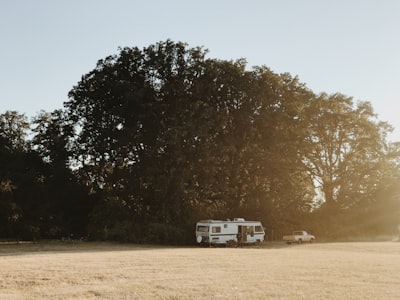|
Have you decided to go ahead with your dream of buying an RV for long cross-country trips? The next decision centers around which types of vehicle is right for you and your spouse or family. Then you can partner with your independent insurance agent to get an RV insurance policy that meets your travel plans. Here's a short guide to the various types of RVs that are available to you.

Class A: These are large vehicles that resemble a fancy bus and are often luxury models geared at those who have a large budget. These are truly homes on wheels, with all of the amenities that are available. The exterior walls can expand the living space and many of these vehicles can sleep up to eight people.
Class B: These are small RVs or camper vans, and great for those with a bit of a tighter budget. Class B RVs are not as fancy as Class A vehicles, but they’re comfortable and come with options that will suit your living needs. Some vans that are converted into RVs fit under Class B, and are an economical way for a couple or small family to travel.
Class C: These are smaller than Class A RVs, which makes them easier to drive and maneuver through parking lots and RV parks. Typically there is a bunk above the driver's cabin, which is quite spacious and makes it easy for passengers to move from the front to the living quarters.
Fifth Wheel Trailers: For travelers who plan to explore at their destination, a fifth wheel is a good alternative to a traditional RV. You pull it behind your vehicle, usually a large pickup truck. Since the mount point is on the truck bed, you can have a large tow weight.
Travel Trailers: Like a fifth wheel, these are pulled behind a vehicle and set up when you arrive at your destination. They're small enough that you can pull them behind a small sedan if you wish. Some people can live on the road full-time with this set up, but it requires a more minimalist lifestyle than living in a traditional RV.
Truck Camper: These are mounted in the back of a pickup, with the tailgate removed and the camper unit clamped to the side. They're great for the weekend traveler since they have just minimal features, including self-contained water systems, heating and air conditioning and an ice box.
Folding Camping Trailer: These are among the cheapest options, and also called pop-ups or tent trailers. They fold down to a small size and can be pulled by a medium sized car. Newer models are easier to set up than ones from decades past. Amenities are minimal.
Whichever type of vehicle you select, remember to insure it with an appropriate RV insurance policy for protection on-the-go!
Are you covered? Call Bromell Agency, Inc for more information on RV insurance.
Posted Tuesday, November 05 2024 10:10 AM
Tags : rv insurance
|